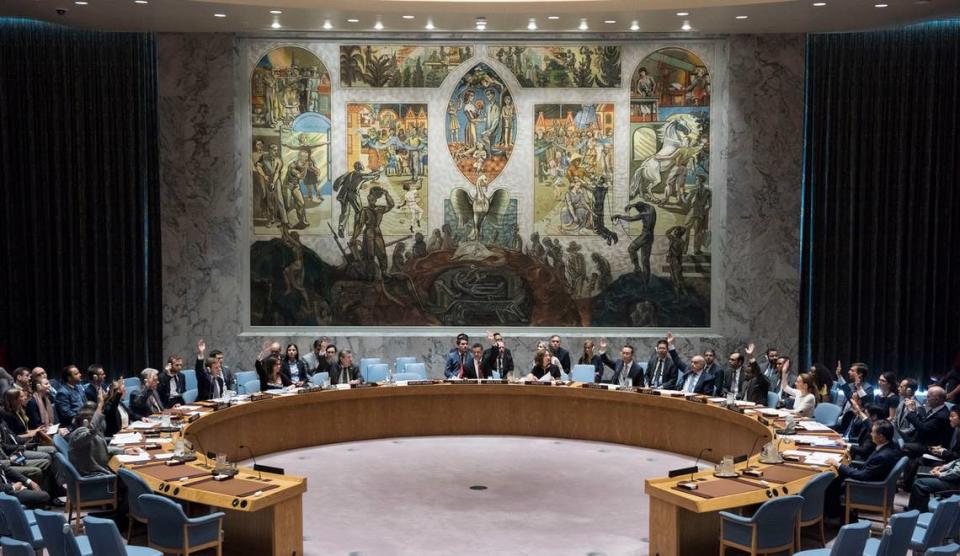Kenya’s high court blocks deployment of forces to Haiti until it can hear challenge
- Oops!Something went wrong.Please try again later.
The highest court in Kenya has blocked the deployment of security forces to Haiti to help the volatile Caribbean nation disarm dangerous gangs, issuing a temporary halt until it can hear an objection that the mission is unconstitutional.
Monday’s decision by the tribunal, the equivalent of the country’s supreme court, prevents Kenya from deploying any of its police or military to Haiti until Oct. 24 to give the court time to look at a petition filed by Ekuru Aukot, a former presidential candidate and expert on Kenya’s constitution. Aukot claims the decision by President William Ruto to come to Haiti’s aide violates Kenya’s constitution.
Aukot posted the court’s decision on social media. In a tweet on X, the former Twitter, Aukot said: “We must protect our constitution. We cannot allow to be used and abused by whatever foreign powers.”
The United States, which supports Kenya’s deployment of a Multinational Security Support mission to Haiti, had hoped for a smoother transition between last week’s U.N. Security Council vote authorizing the mission and its actual arrival in Haiti. Though reluctant to discuss the politics in Kenya, the U.S. State Department routinely noted that Ruto’s party controlled his country’s parliament.

Ruto has always said that Kenya’s leadership of the mission was contingent on several factors: an assessment of the crisis by his security experts; that at least 2,000 personnel are ready to be deployed by different countries; that the U.N. Security Council approve the mission, and that Kenya lawmakers green light the effort.
All but one has already taken place. Since last week, opposition lawmakers in Kenya have questioned why the plan was not brought before them before the U.N. resolution authorizing it. Lawmakers have also said given the security needs in Kenya and in the region, the country cannot afford to send security forces to another country.
The U.S. has pledged $200 million to fund the mission, which will also be paid with voluntary contributions.
Although the mission has received U.N. approval, it is not technically a U.N. deployment. That approach has provoked debate in Kenya.
Ruto has not said when the forces would be deployed. However, former Foreign Minister Alfred Mutua, who lost his job last week in a cabinet reshuffle, had said they could arrive in Haiti by January if not sooner.
Supporters of a mission to Haiti point out that the situation in the Caribbean nation remains critical. On Sunday, 15 armed men, some dressed as police special forces, invaded a church during a service in a Port-au-Prince neighborhood in an attempt to kidnap its pastor. At least one person was kidnapped, the Rev. Julio Volcy told the Miami Herald.
More than 2,500 people have died so far this year at the hands of gangs, according to the U.N., and at least 970 Haitians have been kidnapped. Thousands of others have been forced from their homes by gangs that have emptied out entire neighborhoods.

